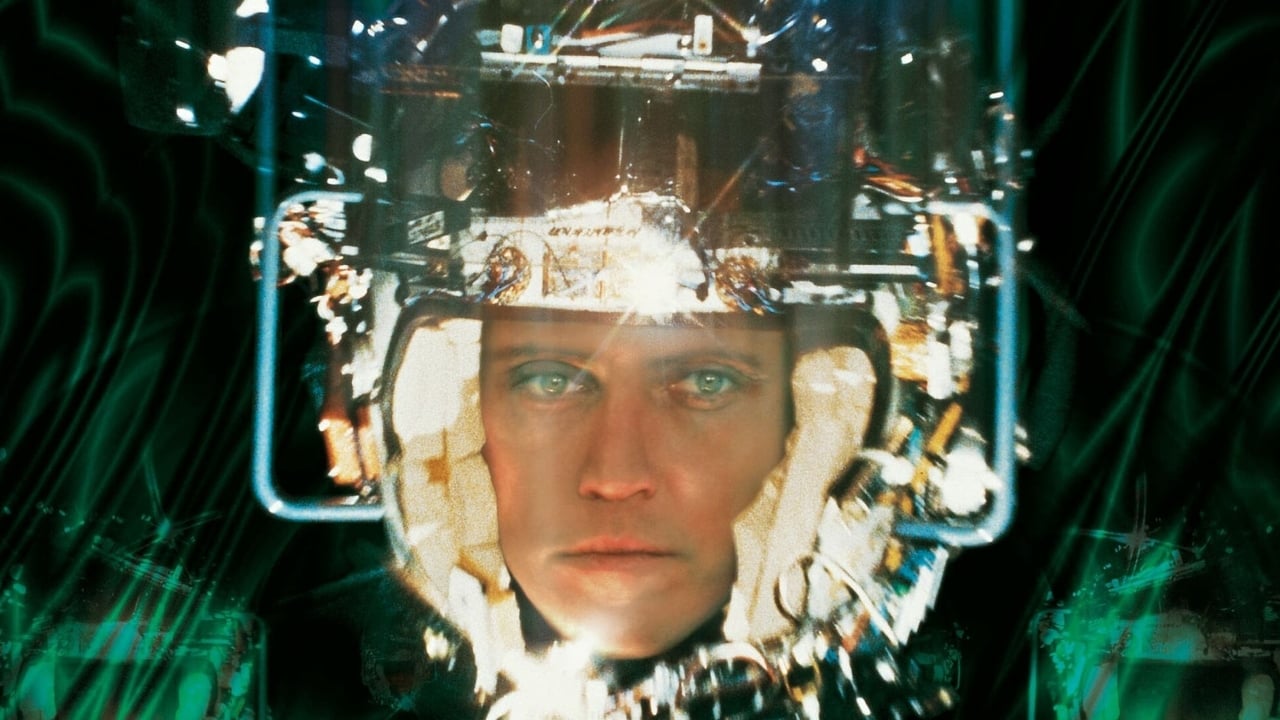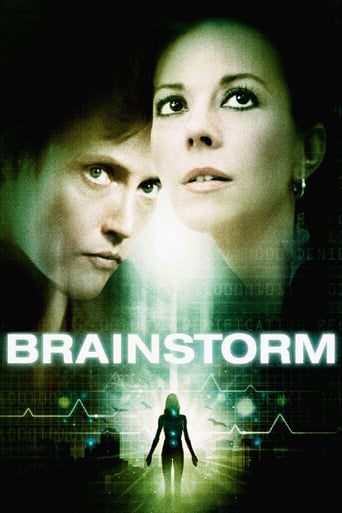

Don't listen to the negative reviews
... View MoreThis is one of the few movies I've ever seen where the whole audience broke into spontaneous, loud applause a third of the way in.
... View MoreI didn’t really have many expectations going into the movie (good or bad), but I actually really enjoyed it. I really liked the characters and the banter between them.
... View Morewhat a terribly boring film. I'm sorry but this is absolutely not deserving of best picture and will be forgotten quickly. Entertaining and engaging cinema? No. Nothing performances with flat faces and mistaking silence for subtlety.
... View MoreThe basic premise of this movie, the technology, is in sync with that of a short story by Arthur C. Clarke, published in 1954. Clarke's story, first published as "Patent Pending," and also published as "The Invention," appeared in his collection, Tales from the White Hart. The story within a story tells of a French scientist who successfully finds a way to record and play back brain waves, allowing experiences to be replayed by other people.
... View Moreand the memory of her in other good-to-great films, is the ONLY reason to watch this rubbish. It was extremely disjointed, as if the director/writers were going in one direction and then would stop take a holiday or something and come back with a different idea altogether. One other reviewer mentioned the son being disturbed and yet Walken and Wood never are seen with the son or even mention him again after his "psychotic break" as it is called due to him playing with Dad's toys. I also agree with the reviewer who said that Louise Fletcher's chain smoking looked like it was done by someone who has never smoked. Really, it isn't any one gripe that stands out, the story-lines just aren't fleshed out, the script is mediocre, and the whole thing doesn't make sense. Slapping on a romantic ending to a sci fi/futuristic film without a strong ending to the sci fi is another poor choice.I was impressed by how Natalie Wood continued to be a knockout, perfect hair and make up, and a good actress even in this lousy film, till the day she died.
... View MoreDazzling visual effects (no surprise considering the director) and a superb Louise Fletcher performance (it is hard to believe with this kind of performance, she'd be little more than a surrogate grandma to Drew Barrymore just a year later in Firestarter) really lift Douglas Trumbull's Brainstorm into an A-picture. Too bad Natalie Wood's death undermines what could have been perhaps a highly recognized science fiction film. Wood plays the wife of star, Christopher Walken. Fletcher has dedicated her life and career to a project which allows others to sense, feel, and experience what another does, through the use of a head device. Wood is the one responsible for finding a cosmetic means to make the head device acceptable and efficient. Walken has developed a type of love affair with Fletcher while working closely with her on the "mental and sensory device", and this has estranged him from Wood. While a great deal of what has bonded Walken and Fletcher is intellectual and built respect for the work they have accomplished, their project could be "kidnapped" from them by the military that helped their "financial backer", Alex (Cliff Robertson), continue to fund it in the hopes of using the device as a possible brain-washing and torture weapon "against those who threaten the country" (or use it to further the benefits of high ranking officials in the government). The potential for something extraordinary is all there, but the military involvement ruins the satisfaction and gratification for how the project has proved to be successful. An obsessive smoker and a series of health setbacks due to her heart, Fletcher's Lillian Reynolds eventually succumbs to the weight of the stress overwhelming her thanks to the seizure of the sensory project. What happens that makes their project even more extraordinary is how what they see, feel, and experience can be "recorded" on tape for others to visualize and relive. Lillian's death and "journey to the afterlife" is recorded and Walken wants to experience not just that but thoughts and memories "stored away and ready for access", all available on tape. An excitable member of the project, kind of a human guinea pig, named Gordy (Jordan Christopher), who was in the other helmet, his experiences visualized and felt by Walken's Michael Brace at the beginning of the film, perishes when the military insist on seeing what he was during a playing of Lillian's final moments (although, Michael is able to make modifications that removed literally feeling the heart attack that killed her, while Gordy wasn't so lucky to have such "upgrades". When another member of the project, Hal (Joe Dorsey), experiences orgasm thanks to a tape recorded when Gordy had sex with a woman, this "ultimate experience" is the trigger the military needed (they were "keeping tabs" (spying) on Lillian's project to see how far they were advancing) to pursue the helmet device for their soldiers and officers in a type of "factory assembly".The plot of the device is quite a gem, considering the idea that I could possibly experience what it feels like to surf on the open wave or ride high above the Golden Gate Bridge or experience sex with a super model. Wood, although I have read so many say this, isn't just "wasted" in her role. It serves its purpose. No, this isn't Splendor in the Grass; its science fiction based on a married couple finding themselves reunited once the head device has them realizing what they did to each other from their own perspectives. One great moment has Mike understanding how it feels to be ignored, the anger his wife feels and what she sees when he's an asshole. Fletcher's heart attack is quite hard to watch, but the hell and approach to heaven sequences are quite eyepopping, as is the way her memories are seen as "bubbles to open and view" by Walken. The systematic, schizophrenic meltdown of the factory and technological breakdown that results from the work of Walken and Wood so that he can access Fletcher's last-of-life and death tape is hilarious (particularly when the foam expands as water hits the boxes containing the material.) A motley group (which includes Hal, and a character played by Walken's wife, both of whom worked on the project and were against the military's seizure of their work against their wishes) of scientists being able to cause ruination to a heavily operated government takeover is always rather entertaining, none the more so than seeing a faux "marital spat and attempted recovery" across "the telephone" being "spied on" by members of the military coup that took over the project as a means to gain access to Fletcher's tape. The "seeing through the eyes" technique and overall letterbox format / ratio presented by Turner Classics Movies and directed this way purposely by Trumbull for optimal effect might not be for all tastes, but I thought it was an aesthetically pleasing presentation that (to coin the phrase used to describe the head device and its abilities) "knocked my socks off". Robertson is basically the middle man that sees that finances go to the project, that it is successful, and then those who benefit from it profit him (he's the bureaucrat with benefactors waiting patiently for Lillian's team to be successful). Fletcher's fight for her project, and how it eventually kills her is essential to film's dramatic power, and the device itself (how it rewards, kills, and can be used for good and evil) is as good a plot tool as anything sci-fi could produce. Quite an adventure, but at its best when the device develops its characters and their motivations.
... View MoreWhen this film was released in 1983, it felt secondary to the larger story and the mysteries surrounding Natalie Wood's death. It may be easier now to evaluate the work on its own merits.The film has some major flaws. There are sequences that are confusing to the viewer. Partly because of this, the various story lines feel slapped together, not fused in a cohesive way.It would be nice if the film felt like a fusion of sci-fi, romance, suspense, and spiritual revelation, but instead it feels like each of those elements roughly abuts the others, making if difficult to feel emotionally attached to the whole.Still, there are some worthwhile performances, notably by Louise Fletcher and Natalie Wood. And the visual representations of brain activity are interesting. Best of all, the high-tech feel of the film is impressive.In the end, the film tries to do too much. Its various themes compete with each other and each is cheated.
... View More